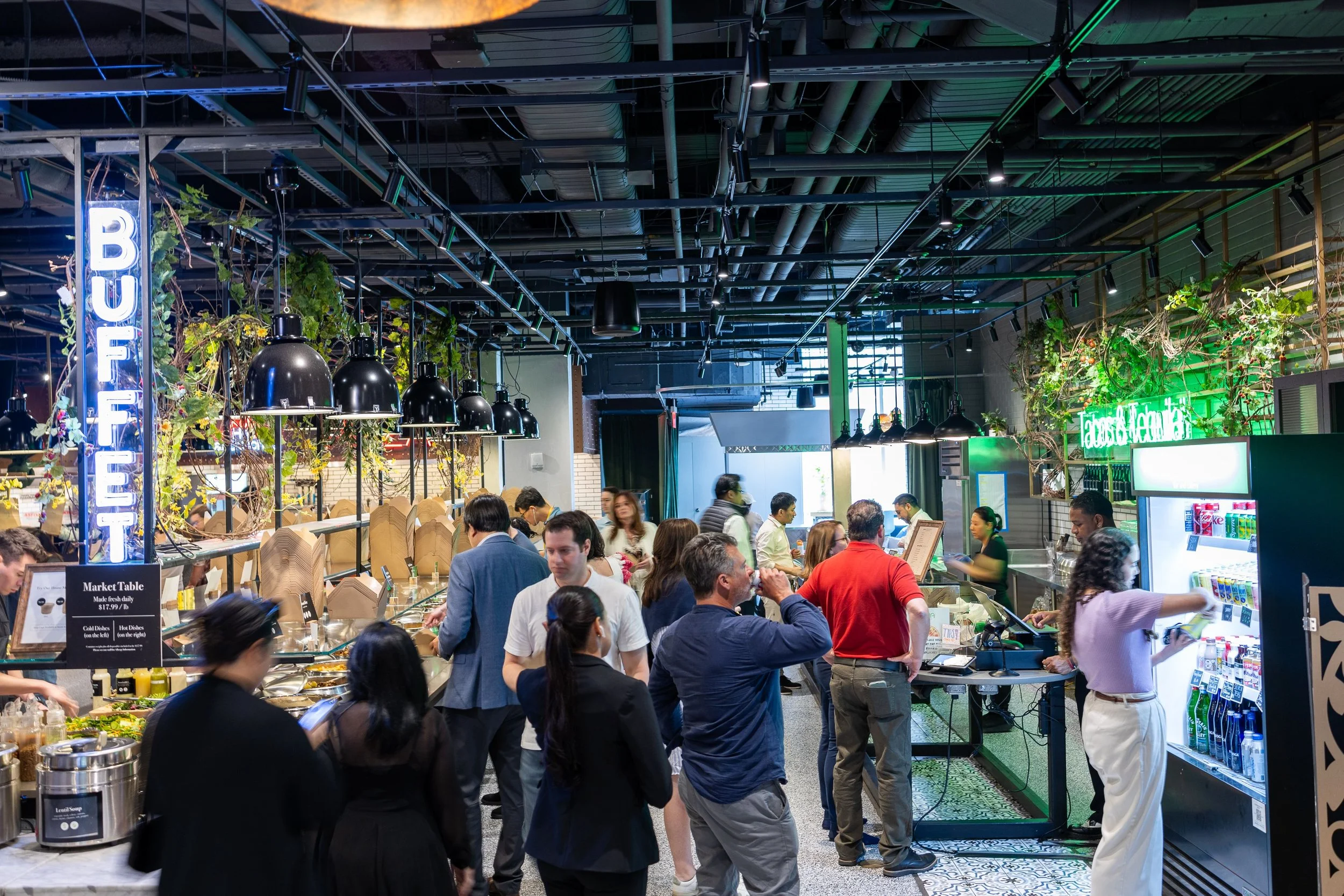
Over the last few years, the real estate industry has seen a trend of developers struggling to occupy large retail spaces. COVID-19 and the rise of eCommerce only exacerbated this as many large retailers that had previously served as target tenants continue to downsize their brick-and-mortar presence.
However, while the traditional single-tenant retail brokerage formats continue to decline, developers that are able to reimagine their retail spaces into multi-tenant food and beverage concepts have found a low-risk high-reward solution to this issue while also advancing their portfolios.
Industry Insight
Building for the future.
Planning & development
When deciding to break ground on or repurpose a space, many developers are unaware of how to optimize their square footage and how to position themselves to increase their return on investment. By having a development partner that understands the market and how to cater to your specific audience, you can minimize costs, establish realistic timelines, and set clear KPIs.
-
-Market Analysis
-Site Review
-Concept Development
-Construction planning
timeline development
-Rent projections and operating costs
Tackling large-scale multi-tenant hospitality projects like market halls requires detailed organization and clear communication channels. With hundreds of contractors on site, it’s important to designate a liaison between the developer and the construction team to ensure that timelines are being met, resources are being conserved, and that money is being properly managed.
Management
-
-Vendor Identification
-Vendor Vetting
-Contract Negotiation
-Rent Structuring
Curation & leasing
Understanding the needs of your customers while developing a leasing strategy that optimizes revenue can often seem like a daunting task. With roots in the global and national culinary scenes, Local Culture is constantly identifying emerging and experienced restaurateurs to activate in their spaces. By carefully curating a food and beverage mix for each unique project, developers can be confident in a series of offerings that reflects their target audience.
-
-Project Management
-Identification of Construction Partners
-Expense Control
Brand Positioning, Marketing & community building
Quite often, Real Estate developers adopt a “build it and they will come mindset”. However, marketing is a key aspect of market hall success. Marketing one restaurant is challenging enough so imagine the complexity of marketing multiple under one roof. Managing the brands of each of your vendors requires clear direction and constant organization. Successful fool halls develop and maintain a cohesive brand that still showcases the diversity of each of your vendors. Events, activations, and partnerships are also critical components of developing lasting concepts that become part of the neighborhood. From your logo to food photography to advertising strategy, enlisting a partner like Local Culture allows for the right creative partners to be brought on to create strategies to visually and verbally appeal to your ideal customers.
-
-Creative Direction
-Brand Strategy
-In House Marketing Team
-Agency Oversight
-PR Facilitation
-Social Media Management
-Multi-Channel Marketing Strategy
-Partnerships/Influencer Identification and Outreach
Management & reporting
From hiring the right market managers to making sure health codes are being adhered to collecting rent, it’s helpful to have an operational partner to ensure that business runs smoothly. The team at Local Culture has managed large food hall spaces organizing over 40 different vendors so no matter the scale or complexity an operational strategy can be developed to fit your needs.
-
-Hiring Strategy
-Fire Suppression
-Code Compliance
-Legal

